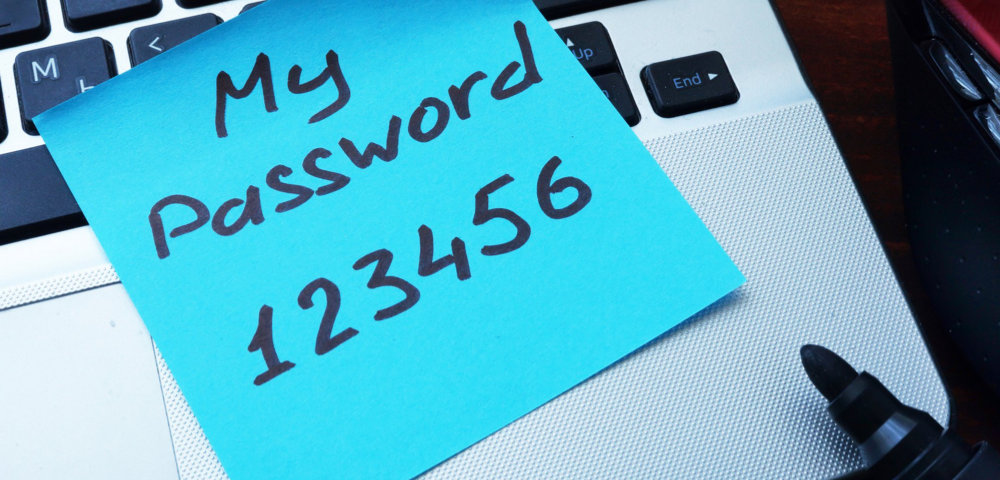
How strong is your password?
A recent report from NordPass contains a list of the most commonly used passwords in the US and 29 other countries. The report shows that people are still frequently using weak passwords like ‘guest,‘123456’, Password1, ‘a1b2c3’ and ‘qwerty’ to protect their accounts.
Worryingly, 83% of these passwords can be cracked in less than a second!!! A strong password is essential for protecting your data. Here are 5 Top Tips for setting passwords:
1. Length is Your Ally: Ditch the 8-character minimum and aim for 12 characters or more. The longer your password, the harder it is to crack. Think phrases instead of single words.
2. Diversity is Key: Don’t stick to basic patterns. Use a mix of uppercase and lowercase letters, numbers, and symbols. Don’t just add numbers and symbols at the end, incorporate them creatively throughout your password for increased protection.
3. Protect your Personality: Avoid using personal information like birthdays and names of family members or pets. This may make it easier for you to remember your password but it also makes it easier for someone else to guess, especially if you use information that is easy to obtain from your social media posts!
4. Uniqueness Matters: Resist the urge to reuse passwords across different accounts. Each platform deserves its own unique password. Think of them like individual keys to different doors.
5. Complexity Over Dictionary: Forget “password123” and steer clear of common words found in dictionaries. Opt for unconventional word combinations or nonsensical phrases. Let your creativity flow!
Bonus Tip: Enable two-factor authentication (2FA) whenever available. This adds an extra layer of security by requiring a second verification step, like a code sent to your phone, even if your password is compromised.

Keep your passwords secure.
Once you’ve created a strong password, follow these guidelines to keep it secure:
1. Don’t share your passwords with anyone, not even a friend or family member. Once a password is out of your control it is no longer secure!
2. Don’t write your password on sticky notes or cards that you keep near the device the password protects, even if you think they’re well-hidden. It’s OK to write your passwords down, as long as you keep them somewhere safe.
3. Change passwords immediately on accounts you suspect may have been compromised.
Best practice.
If you don’t want to memorize multiple passwords, consider using a password manager. The best password managers will automatically update stored passwords, keep them encrypted, and require multi-factor authentication for access. Examples include:
- 1Password
- Dashlane
- Bitwarden
- KeePass
We recommend that LastPass is avoided as it has suffered multiple security breaches.
Remember, strong passwords are your first line of defence against cyberattacks. By following these tips and staying vigilant, you can keep your digital data safe and secure.
For Further Information or advice, please contact the Magikos IT Team or fill in the form below and we will contact you.
Tel: 01344 204019
Email: [email protected]